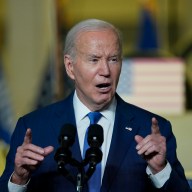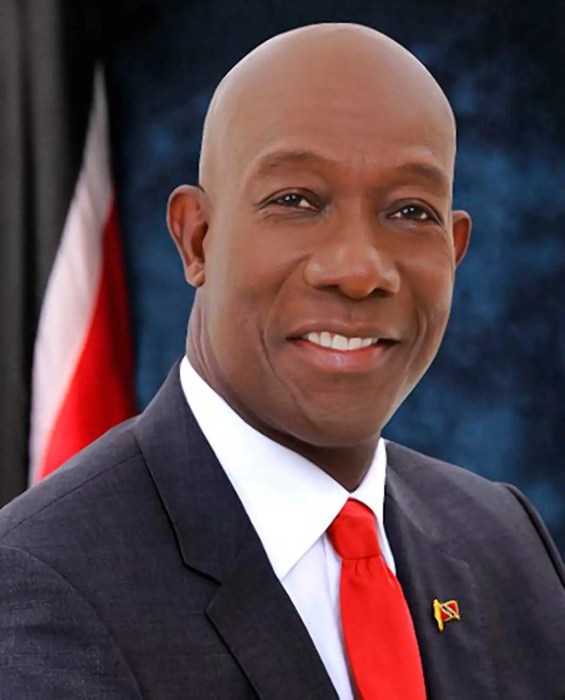WASHINGTON – British Prime Minister David Cameron arrives in Washington on Tuesday amid a period of uncharacteristically strained relations between the U.K. and the United States.
The White House’s anger at BP, the oil giant formerly known as British Petroleum, over the disastrous Gulf of Mexico oil spill had already resulted in a chasm between the two countries _ despite years of close relations after the Sept. 11, 2001 terrorist attacks on the United States.
Now BP’s alleged involvement in the early release of the only man convicted in the 1988 bombing of Pan Am Flight 103 over Lockerbie, Scotland, has exacerbated an already tense situation.
In his first official visit to the White House, Cameron is expected to tell U.S. President Barack Obama that the release last summer of Abdel Baset al-Megrahi from a Scottish jail was a dreadful mistake. The bombing killed 270 people, including four Canadians among the mostly American victims.
The London Telegraph reported on Monday that the Conservative prime minister will assure Obama it was “wrong” to release the Libyan intelligence official so soon after his 2001 conviction, but he’ll place the blame squarely on Scotland, with its own independent judicial system, and on the previous Labour governments of Gordon Brown and Tony Blair.
“The prime minister’s view is that the decision to release Megrahi was wrong and he deeply regrets the pain that his release has caused,” a spokesman told the Telegraph. “However, it was a decision for the Scottish executive alone.”
Cameron will also attempt to douse another smouldering BP hotspot: he’ll dispute published reports in Britain that the oil company lobbied the British government specifically for al-Megrahi’s release in order to secure permission to drill for oil off Libya’s Mediterranean coast.
In an interview with the BBC on the eve of his visit to Washington, Cameron attempted to distance himself from the oil company.
“I have no idea what BP did, I am not responsible for BP,” Cameron said, but added that discussions between BP and Brown’s administration on a prisoner transfer agreement in 2007 did not include talks on al-Megrahi.
William Hague, Britain’s foreign secretary, has told U.S. Secretary of State Hillary Clinton that allegations BP was involved in Scotland’s decision to release al-Megrahi are unsubstantiated.
BP has admitted it pushed the British government three years ago to participate in the prisoner-exchange deal with Libya in order to facilitate oil exploration in the North African country, but denied it specifically wanted the release of al-Megrahi.
The Libyan, suffering from prostate cancer, was freed by Scotland on compassionate grounds when Scottish officials were told he had just three months to live _ but he’s still alive and residing in Tripoli. Al-Megrahi was given a hero’s welcome in Libya upon his release.
The U.S. Senate’s foreign relations committee is holding hearings, starting July 29, delving into BP’s involvement in al-Megrahi’s release.
On the eve of Cameron’s visit to Washington, four senators sent him a letter requesting a formal meeting while he’s in town to discuss the allegations.
But the British Embassy in Washington said Cameron’s schedule is full and he wouldn’t have time to meet with Sens. Charles Schumer, Kirsten Gillibrand, Robert Menendez and Frank Lautenberg. Instead, a spokesman said, British Ambassador Nigel Sheinwald is expected to sit down with the legislators.
BP has become a favourite whipping boy of U.S. legislators due to the environmental and economic calamity that’s played out in the gulf since April, when the company’s Deepwater Horizon oil rig exploded and crude began gushing into the sea from an errant well on the ocean floor.
But the rage directed at BP has angered some Britons, particularly pensioners who have their retirement funds tied up in the company’s stock.
Cameron has been assailed back home for not taking a stronger stance in defence of BP, while Obama has been accused by British media and politicians of “Brit-bashing” and xenophobia.
But that isn’t stopping Schumer from pushing the U.S. Justice Department to probe whether BP, with its significant business assets in the United States, violated the so-called Foreign Corrupt Practices Act if it emerges the company had a hand in al-Megrahi’s early release.
“No matter how powerful the corporation or how important a foreign government, a blood-money deal is a blood-money deal,” Schumer said in New York on the weekend. “BP wanted access to Libya’s oil fields. Libya wanted Megrahi back. This hardly seems like a coincidence.”
The lurid accusations have renewed a brouhaha in the U.K. over the prisoner-transfer deal with Libya, due in part to Blair’s involvement.
London’s Daily Mail reported on Monday that the Senate committee’s probe could ensnare high-level British officials that include Blair, though it’s not clear whether any British officials will travel to Capitol Hill to testify.
Scotland, fighting back against accusations from 10 Downing Street that it’s solely to blame for the release of al-Megrahi, has pointed the finger at Blair, who was such a close ally of George W. Bush’s in the former president’s so-called war on terror that he was often called “Bush’s poodle.”
Alex Salmond, the first minister of Scotland and head of the Scottish National Party, says U.S. senators should direct their questions to Blair and his “deal in the desert” three years ago, near the end of his 10 years as prime minister, that allowed BP to invest millions of pounds in order to explore Libya’s oil reserves.
“If the U.S. Senate wants to get the truth about the deal in the desert by the U.K. and Libyan governments in 2007, they should call Tony Blair to give evidence. Blair was its architect _ he would be the one who knows about an oil deal,” a spokesman for Salmond said Monday.
Salmond also accused a British Tory MP, Daniel Kawczynski, of once suggesting al-Megrahi to be used as a bargaining chip between Britain and Libya.
“He wrote to the Justice Secretary in August last year saying that al-Megrahi should be used as a foreign policy bargaining chip, which is as extraordinary as it is inappropriate in relation to determining applications for prisoner transfer or compassionate release.”
















